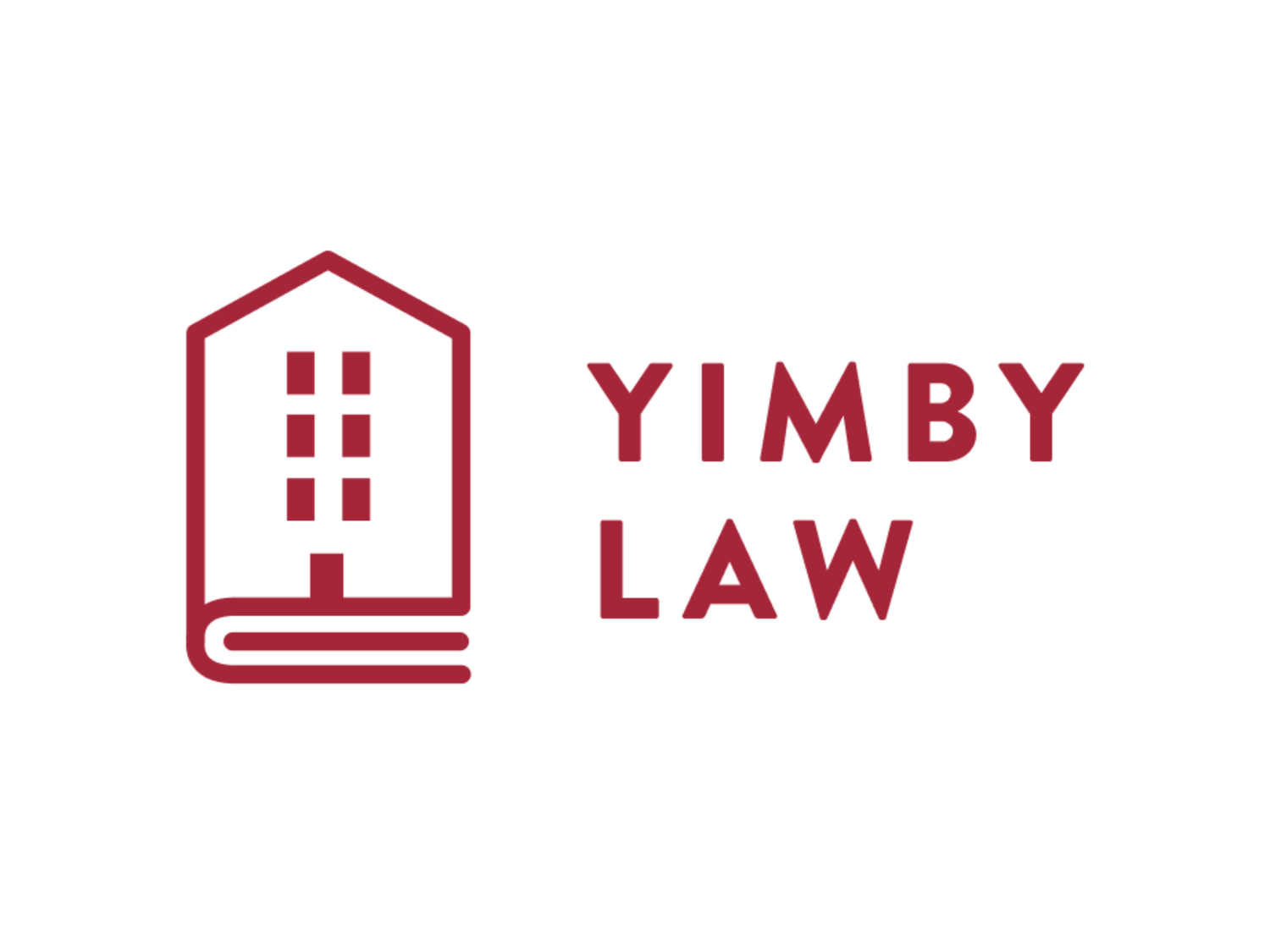Our Mission
YIMBY Law’s mission is to end the housing shortage and achieve affordable, sustainable, and equitable housing for all.
Who We Are
YIMBY Law is the legal arm of the pro-housing movement and is housed in YIMBY Action’s 501c3 affiliate, Yes In My Back Yard.
What We Do
We ensure that good housing policy becomes a reality.
YIMBY Law leads grassroots oversight and takes legal action so that housing laws are followed, more homes are built, and housing becomes affordable and equitable.
YIMBY Law also works with state and local agencies, advocates, and developers to improve housing laws and their implementation.
Check out YIMBY Action/YIMBY Law’s National Implementation Guide!
Why We Matter
Years with no housing law accountability coupled with NIMBYism dominating local housing discourse have taken a toll on housing production especially in wealthy communities, and have caused housing shortages across the country.
YIMBY Action chapters and members, pro-housing community organizations, and state and local lawmakers have fought for strong accountability measures to be included in recent housing laws and have passed a set of laws to:
Address the housing shortage
Increase housing stability
Make housing more affordable
Provide consequences for not complying with the law
These laws provide clear guidelines for cities to follow so that more homes are built and more people are housed. The critical next step to achieving housing for all is to make sure these guidelines are followed. Cities and counties now have a job to do and YIMBY Law is here to make sure they do it.
How We Do It
We organize volunteer watchdogs.
YIMBY Law leads the Campaign for Fair Housing Elements by engaging hundreds of volunteer watchdogs and activists from YIMBY Action chapters to monitor city and county compliance with pro-housing laws. Volunteers regularly attend, provide public comment, and report on hundreds of public meetings across California.
We call for compliance.
When YIMBY Law identifies housing law violations we notify local governments of their non-compliance and request that they correct their actions to follow the law.
We also inform relevant state agencies of the violation(s) to facilitate additional accountability.
We take legal action.
When jurisdictions continue to avert the law, we sue for non-compliance. YIMBY Law first filed suit in 2019 against Simi Valley. Since then, we have won nine of ten lawsuits across California and filed amicus briefs to support additional housing law enforcement.
Support our work by getting involved or by donating.
California Laws We Use
Housing Accountability Act
Government Code § 65589.5
The Housing Accountability Act (HAA) ensures that cities follow the objective standards in their own published zoning and general plan. It prohibits cities from denying plan compliant projects, unless they can make very specific findings related to health and safety.
A new section of the HAA that is increasingly useful and important, § 65589.5(f)(4), ensures that when the general plan and the zoning conflict, the land use in the general plan controls. Read more, pg 2-3.
Housing Crisis Act of 2019 (SB 330)
Prohibits downzonings
Government Code § 66300.(b)(1)
Prohibits reduction in “residential intensity” below the level permitted on January 1st, 2018. Less intensive uses include but are not limited to reductions in height, density, or floor area as well as new or increased setback requirements, minimum frontage requirements, or maximum lot coverage limitations. At its most basic level the law prevents cities from reducing the amount of housing that can be constructed below whatever was permitted in 2018.
Tenant protecting demolition controls
Government Code § 66300.(d)
Requires that projects proposing the removal of certain types of protected residential units replace those units. Protected units include units occupied in the last 5 years by a low or very low income household, units subject to price or rent control, units subject to price controls through a covenant or deed restriction, and units withdrawn from the rental market under the Ellis Act.
five hearing maximum
Government Code § 65905.5.(a)
Requires that projects that comply with all general plan and zoning ordinance provisions be subjected to no more than five public hearings. A city must make a decision to approve or deny an application for a compliant project within the five hearing limit.
Density Bonus
Government Code § 65915
Density Bonus promotes the creation of both deed restricted, below market rate, affordable housing and also more market rate housing. In exchange for setting aside some amount of housing to be rented at certain below market rates, the project sponsor qualifies for waivers from the zoning code, allowing the resulting project to be bigger than it would otherwise be.
Planning and zoning: affordable housing: streamlined approval process (SB 35)
Government Code § 65913.4
SB 35 is a revolutionary law passed in 2017 that creates a ministerial (also known as by right) process for housing developments that meet certain requirements. Similar to the Density Bonus, in order to qualify for this process, the proposed housing project has to have a certain amount of below market rate housing included.

